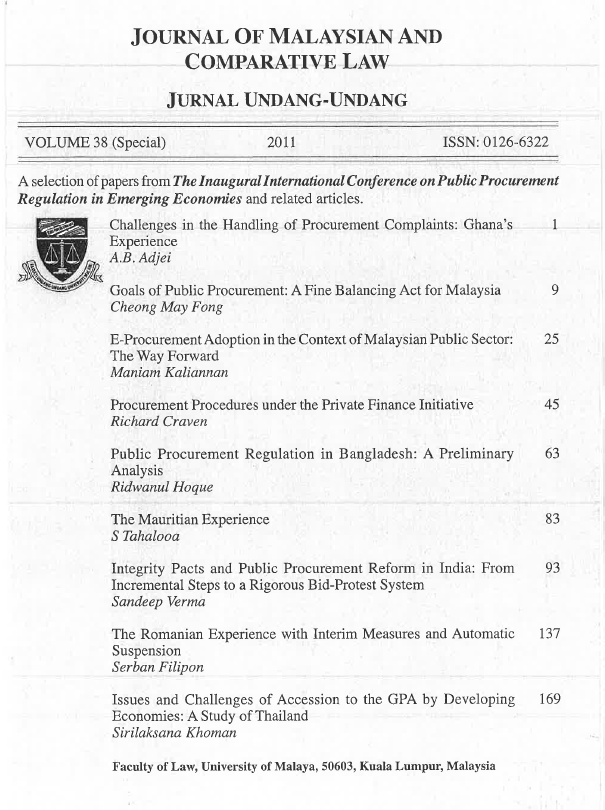The Romanian Experience with Interim Measures and Automatic Suspension
Abstract
Suspension of an award procedure, pending the review of a complaint lodged by an aggrieved tenderer before an independent review body, is a very important interim measure in procurement remedies. Such measure may prevent an aggrieved member from suffering further damage due to an unlawful act of a contracting authority, affecting the former’s chances of being awarded the contract in question. Suspension can also prevent a contracting authority from continuing an award procedure on an unlawful basis that might increase its liability in later litigation concerning the award procedure in question, or the awarded contract. However, depending on the moment when suspension starts (or ends), and on conditions that may trigger it, or otherwise, the practical implications are many folded. This article analyses the Romanian experience with its regulation of the suspension of an award procedure, from an immediate and automatic suspension of the award procedure as a result of lodgement of a complaint, to a non-automatic (voluntary) suspension. The article describes all the stages and shades to which suspension has been going through, from one extreme to the other, within the limits of the applicable EU rules, in just about four years. The article is a “snapshot” of suspension in the Romanian procurement system as at July 2010. Meanwhile, two other amendments to the Romanian procurement law were enacted, and they brought some further changes and clarifications to suspension, and to other procurement remedies issues. However, these amendments do not affect the analysis of the various forms of suspension and their practical implications, which remains fully up to date. In the near future, it is likely that forms of suspension, similar to those analysed by this article, become actual again. The Romanian experience may very well be relevant for other procurement contexts.
Downloads



